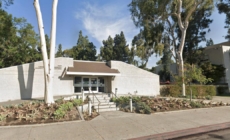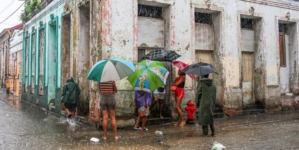-
Exhibitions and Lectures Await Visitors at Budapest Contemporary Jewelry Week - 8 mins ago
-
Aidan Hutchinson, Lions Agree to Extension With Record Guaranteed Money - 9 mins ago
-
Police investigating death of ‘full-term infant’ found near USC campus - 27 mins ago
-
Two Earthquakes Strike the Coast of Oregon Today: What to Know - 29 mins ago
-
Nvidia becomes the world’s first $5 trillion company, buoyed by AI boom - 31 mins ago
-
New Study Proposes Advanced Air Quality Assessment to Protect Public Health - 41 mins ago
-
Trey Yesavage’s Unusual Arm Angle Has Given Blue Jays Rookie An Advantage - 52 mins ago
-
World used record amount of fossil fuels last year, scientists say - about 1 hour ago
-
China Tries To Cover Up Toxic Mining Disaster: WSJ - about 1 hour ago
-
Stray Cats cancel fall tour due to Brian Setzer’s ‘serious illness’ - about 1 hour ago
Nobel Prize Winner Says Visa Was Revoked After Comparing Trump to Dictator
Nobel laureate and critic of Donald Trump, Wole Soyinka, announced at a press conference in Nigeria on Tuesday that his U.S. visa has been revoked, saying the decision came after he publicly likened the president to Ugandan dictator Idi Amin.
“I have no visa. I am banned,” the 91‑year‑old playwright and poet said at a news conference in Lagos.
“Idi Amin was a man of international stature, a statesman, so when I called Donald Trump Idi Amin, I thought I was paying him a compliment,” Soyinka said. “He’s been behaving like a dictator.”
Newsweek has contacted the U.S. State Department for comment via email outside office hours.
Why It Matters
Under the Trump administration’s hardline crackdown, visa applicants are facing increased scrutiny, and current holders are dealing with more frequent revocations. State Department officials are flexing broad authority to cancel or deny visas, often citing national security concerns. Critics say these measures disproportionately target outspoken critics, including university students, academics, and activists involved in political causes such as pro-Palestine protests, raising concerns about freedom of speech.
What To Know
Soyinka, who won the Nobel Prize in Literature in 1986, has been openly critical of Trump for years.
He said his recent description of Trump as “Idi Amin in white face,” could have played a role in the revocation of his visa.
Amin ruled Uganda from 1971 to 1979 and his regime was infamous for its brutality and widespread human rights abuses. He is also known for ordering the expulsion of his country’s Indian minority, giving them 90 days to leave the country.
Soyinka had previously held U.S. permanent residency, but destroyed his green card after Trump’s first election win in 2016.
He said that earlier this year, the U.S. consulate in Lagos summoned him for an interview to reassess his visa status, a meeting he chose not to attend.
“I want to assure the consulate…that I’m very content with the revocation of my visa,” Soyinka said.
At the press conference, he read aloud the cancellation letter from the consulate, which invoked U.S. State Department rules allowing consular officers to revoke non-immigrant visas at their discretion.
Soyinka, born on 13 July 1934 in Abeokuta, Nigeria, is a renowned playwright, poet, essayist and public intellectual. He became the first African to win the Nobel Prize in Literature in 1986, recognized for his wide-ranging literary work that blends cultural reflection with political engagement. His writing often explores themes of oppression, human rights and social justice.
Soyinka’s body of work includes more than 20 plays, as well as essays, memoirs, poetry collections and fiction. He studied in Nigeria and later earned a doctorate from the University of Leeds in the United Kingdom. During his early career, he worked as a literary editor in the U.K. before returning to Nigeria to develop theater and dramatic arts.
In academia, Soyinka has held professorial and visiting positions at universities around the world. His work as an educator has been closely tied to his advocacy for cultural and political awareness.
Soyinka is known for his outspoken activism. He has opposed military regimes and political repression in Nigeria, spending 22 months in detention during the country’s civil war in the late 1960s. His experiences have informed his writing, including the memoir The Man Died: Prison Notes of Wole Soyinka. He continues to be an influential voice in literature and public life, frequently commenting on political issues worldwide.
Soyinka said he remains concerned over the Trump administration’s mass deportation plans, which have involved increased arrests of undocumented immigrants in the country.
What People Are Saying
Nobel Laureate Wole Soyinka said at a press conference on Tuesday: “This is not about me. When we see people being picked off the street—people being hauled up and they disappear for a month … old women, children being separated. So that’s really what concerns me.”
Source link































